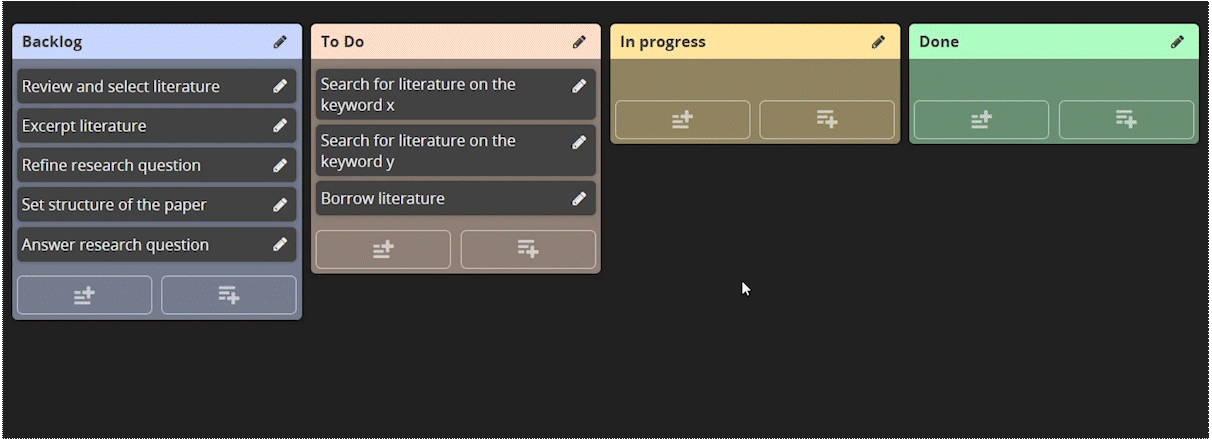Unit 2: Planning Strategies
| Site: | Moodle-Kursserver der Friedrich-Schiller-Universität Jena |
| Course: | Digital Learning Kit - self learning course for studying with digital tools |
| Book: | Unit 2: Planning Strategies |
| Printed by: | Gast |
| Date: | Saturday, 17 January 2026, 9:35 AM |
List of contents
SMART planning
How do I organise my work?
The Kanban Method
How can I organize my planning clearly?
For planning that can be seen at a glance, the so-called "Kanban" was
developed. Typically, it works like this: Physically - with sticky notes - or
digitally, all the task " chunks" to be done are written on a small
card. Then three columns are opened: to do - in progress - done.
In addition, you can also open a column – collection or backlog- in which all
tasks are collected that come to mind but should only be completed at a later
time.
The cards are then moved from the first to the next column depending on their
status, so that you can see the status of your work at a glance.
Tools for this are the Deck function of the cloud of the Friedrich Schiller University Jena, Cryptpad or Trello. Here is an example of how a Kanban for a seminar paper can look like (here: with Cryptpad):

Kanban using the Deck of the Uni-Cloud
How can I use the Deck to use the Kanban method?
What is the Kanban method? Read more about it using this link! Use it to plan in small steps and backwards and always keep an eye on your progress! In addition to Cryptpad and Trello, the Friedrich Schiller University Jena offers a great tool for task planning, also for group projects: The Deck function of the University of Jena Cloud. Here you can find a tutorial on how to use this tool.
The Eisenhower method for prioritisation
Application
As it is one thing to get the tips and another to apply them, we have developed a reflection tool for the Digital Learning Kit that you can use regularly, preferably in exchange with fellow students.
On the Mahara platform as a tool for group work, you can find other students who are interested in similar topics and join together in groups.
The
exchange group also provides reflection templates for documenting your
work and slowly improve it through reflection. You can copy and edit
these templates in your personal portfolio on Mahara. If you wish, you
can share them with the other group members to exchange ideas.